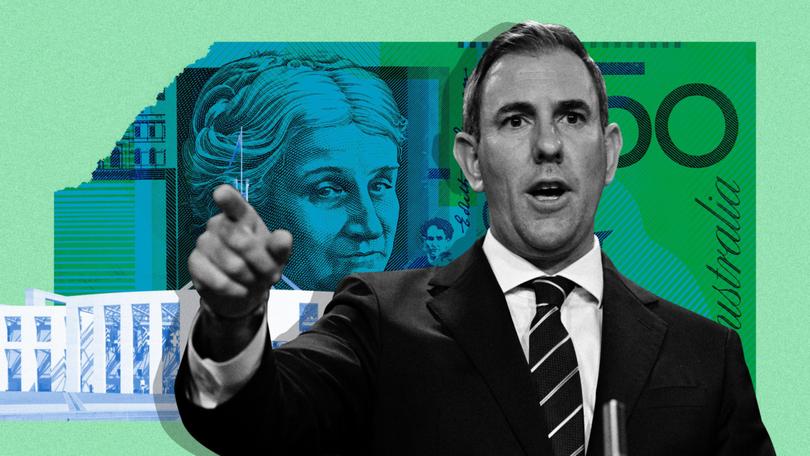EDITORIAL: There’s no such thing as ‘unavoidable spending’

Jim Chalmers loves a slogan.
And “unavoidable spending”, which the Treasurer used to describe the $25.1 billion he added into the Budget, is up there with his best.
The beauty of “unavoidable spending” — money spent on things including Medicare, the Pharmaceutical Benefits Scheme, wage increases for early childhood and aged care workers and pension indexation — is that it can’t be argued with.
Sign up to The Nightly's newsletters.
Get the first look at the digital newspaper, curated daily stories and breaking headlines delivered to your inbox.
By continuing you agree to our Terms and Privacy Policy.If you try, like shadow treasurer Angus Taylor did this week, you’re shouted down as someone who wants to dismantle Medicare or consign elderly Australians to a retirement spent living in poverty.
But there’s no such thing as “unavoidable spending”.
There’s spending that you really, really don’t want to have to cut. But nothing is unavoidable — it all comes down to priorities and choices.
This Labor Government has made the choice to be the biggest spending in four decades outside of the COVID pandemic.
Federal spending as a share of the national economy is projected to hit 27.2 per cent next year, a level not seen since 1986, with the exception of the two pandemic years.
Total spending growth for this financial year is running at 5.7 per cent this financial year.
One of the biggest pressures is from the $50 billion a year NDIS. Attempts to rein in its out of control growth have succeeded in some respects, cutting annual growth projections from 20 per cent to 8 per cent, but spending is still forecast to reach $93 billion a year in a decade.
We are in serious structural deficit.
Dr Chalmers’ “unavoidable” extra spending, as well as the billions more in cost-of-living payments, hasn’t been matched with corresponding savings.
Unless they can be found, the only way any future government can dig the economy out of decades of deficits will be through increased taxation, whether that’s through winding back the stage three tax cuts, tinkering with superannuation tax concession or changes to the way the GST is collected or distributed.
It would take a very brave — or foolish — treasurer to take action to cut down the growing bills for healthcare, pensions and aged care.
But even more foolish is the suggestion that there’s no fat left to cut elsewhere in the Budget.
They key challenge of responsible fiscal management is to balance priorities against each other, decide which is more important and cut wasteful spending so that money can be directed to the areas that matter.
If our politicians don’t find the courage needed to make some of these difficult choices and rein in spending, our nation faces a worrying economic future.
Labor will take to the election a message that they are the party of “responsible financial management” and that they are best placed to guide the country through a tumultuous period to come.
Voters too have some choices to make.
